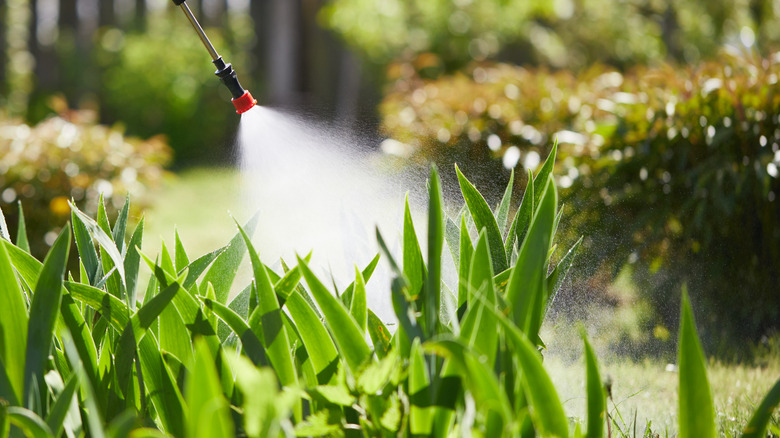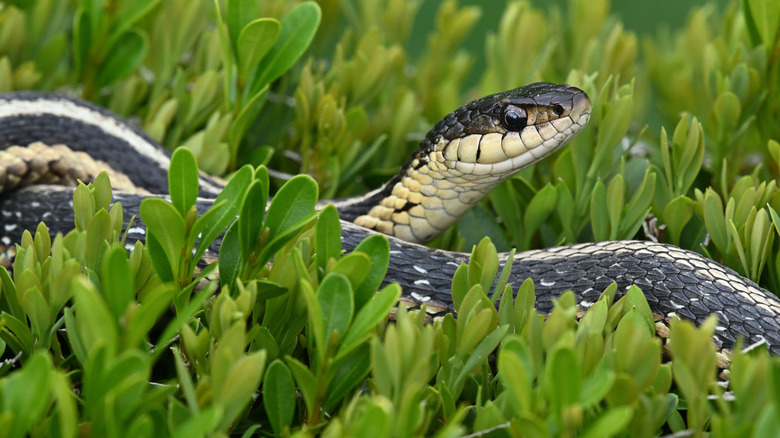The Scary Garden Pest You Might Want To Keep Around
If you suffer from ophidiophobia (fear of snakes), you probably won't welcome the news that the slithery creatures may be living in your garden. Your first instinct may be to run when you see one of these reptiles making its way through the grass. It might help to know, though, that garden snakes are friendly and eat a variety of small animals and destructive insects that are munching on your prized plants. It may even be helpful to learn that snakes are shy creatures — they are as unhappy to see you as you are to see them. Even venomous varieties will slink away unless you bother them, either intentionally or accidentally. They certainly won't chase you. Since snakes are both disinterested in you and helpful in your garden, the smart thing to do may be to keep them around.
Among the most notable signs that snakes have taken up residence in your yard is the presence of shed snake skin. Snakes slough off their skin periodically, usually because it's damaged or the reptile has outgrown it. Garter snakes, the most commonly seen snakes in American gardens, might also be spotted basking in the sun. They give birth in the fall and the young hibernate for the winter, so you'll see them the most often in the warmer months. One thing sometimes attributed to snakes is the presence of holes in the ground around a garden. Snakes don't make holes, though they will sometimes use them as habitats. If you see holes in the yard, you may have a mole or vole issue.
The benefits of having snakes in your garden.
Non-venomous snakes might be your garden's best friend. Their diets consist of live, soft-bodied prey like grubs, slugs, earthworms, and termites. If you have a water feature, they may hang out near it looking for minnows or tadpoles. Garter snakes sometimes grow large enough to eat a whole mouse. Other snake species, such as the corn snake, eat mice, rats, and voles more frequently. These non-venomous snakes help to control the population of pests that have the potential to destroy your garden. By eating small mammals, snakes are also eliminating the disease-carrying fleas and ticks that live on those animals.
It's a good idea to read up on which snakes are native to your area. This will help you identify if the snake you've found is venomous. If you have any dangerous snakes around your garden, wear gloves when gardening and avoid putting your hands anywhere a snake might be hiding without first checking. To rid your garden of venomous snakes, don't spend money on commercial snake repellents. They're not only ineffective, they also pose a risk to other wildlife. Instead, if you encounter a venomous snake in the garden, contact animal control. Keep in mind that these snakes are still an essential part of the environment, and they shouldn't be killed.

